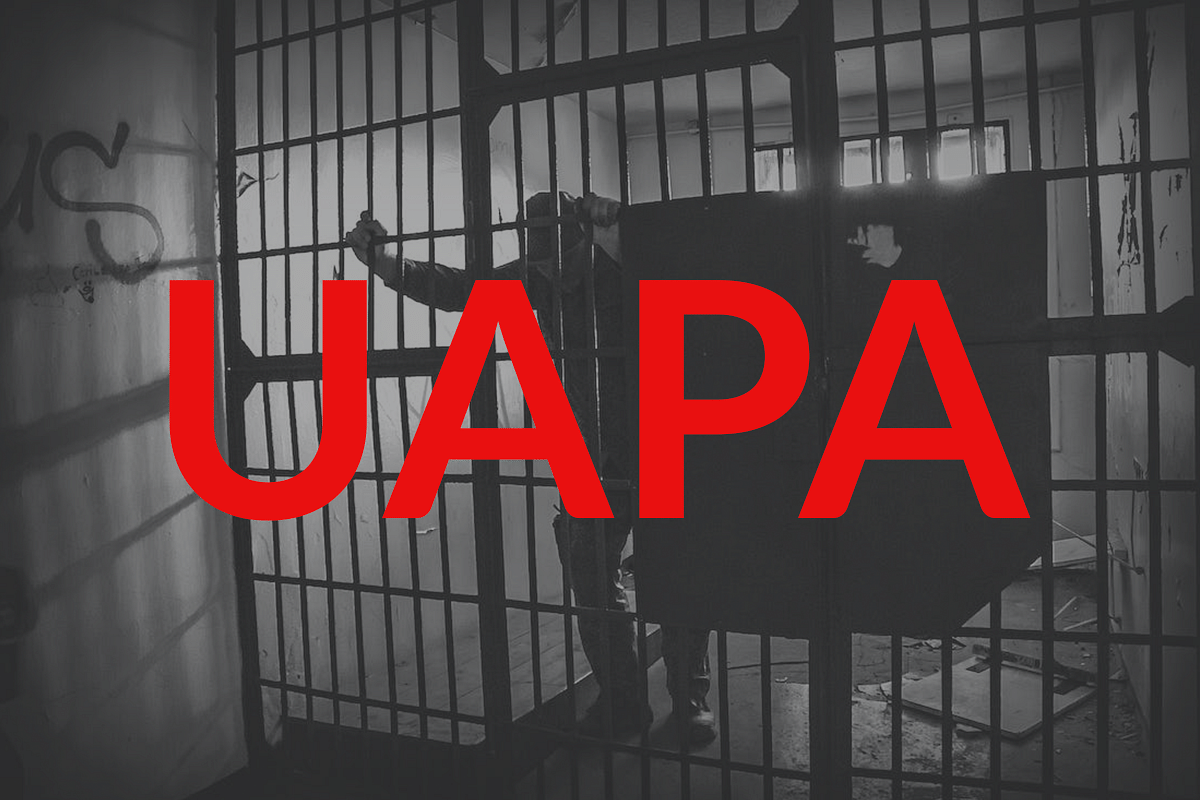News Brief
UAPA In Practice: What Really Happens When An Organisation Is Declared an 'Unlawful Association'?
- As the PFI has been declared as an unlawful association, it will now have to bear several stringent consequences under the UAPA.

Unlawful Activities (Prevention) Act (UAPA) explained.
The Ministry of Home Affairs issued a notification on 28 September declaring the Popular Front of India (PFI) and eight of its associate organisations as "unlawful associations" under the Unlawful Activities (Prevention) Act.
In other words, PFI and its eight affiliates were banned.
What does the UAPA do?
Under the UAPA, the central government can declare an organisation as an ‘unlawful association’ or a ‘terrorist organisation’.
An ‘unlawful association’, which the PFI has been listed as, is an association which encourages or aids persons to undertake any unlawful activity, or offence defined under Sections 153A or 153B of the Indian Penal Code.
Section 153A and 153B of the IPC relates to religiously motivated hate crimes. The provision criminalises acts promoting enmity between different groups on the basis of religion.
As we write this piece, there are around 13 organisations which have been declared as an ‘unlawful association’, ‘Islamic Research Foundation’, headed by fugitive Zakir Naik is an organisation which was banned recently.
If the central government is of the opinion that any organisation is, or has become, an unlawful association, it may, by notification in the official gazette, declare such association to be unlawful.
Such a notification has to specify the grounds on which it is issued. However, the central government is not required to disclose any fact which it considers to be against the public interest.
As the PFI has been declared as an unlawful association, it will now have to bear several stringent consequences under the UAPA.
Here are some of the penalties that an unlawful association has to bear.
Prohibition on the use of funds of an unlawful association [Section 7]: If the central government is of the opinion that any person has funds which are being used for the purposes of an unlawful association, it may by an order prohibit such person from dealing in any manner with such funds.
Notifying places used for the purpose of Unlawful Association [Section 8]: The central government has powers to notify any place which in its opinion is used for the purpose of such unlawful association.
As per the provision a ‘place’ would include a house, building, tent among others.
Penalty for being a member of an unlawful association [Section 10]: A person, who is and continues to be a member of such unlawful association; or takes part in meetings of such association; or in any way assists the operations of such associations, could be imprisoned for up to two years.
Penalty for dealing with funds of an unlawful association [Section 11]: If any person against whom an order under Section 7 has been served, deals with funds in contravention of such order, he could be imprisoned for up to three years.
Penalty for contravention of an order made in respect of a notified place [Section 12]: Any person who knowingly and wilfully enters or attempts to enter any notified place as under Section 8, could be imprisoned for up to one year.
Punishment for unlawful activities [Section 13]: Whoever takes part in or commits, or advocates, abets, advises or incites the commission of, any unlawful activity, could be imprisoned for up to seven years.
Any person who assists any unlawful activity could be punished for up to five years.
Does PFI have a chance of getting this ban overturned?
Technically, whenever any association has been declared as ‘unlawful’ by a notification, the same has to be presented before a Tribunal constituted under the act itself to determine whether there is sufficient cause for declaring the association as unlawful.
When such a declaration is confirmed by the Tribunal, the same would remain in force for a period of five years.
However, the central government, notwithstanding the orders of the Tribunal, has the mandate to cancel such notification of banning, either on its own motion or on application made by any aggrieved by such banning.
Practically though, the PFI doesn’t seem to have a way out. While the aggrieved party can petition the central government to overturn a ban, the final decision rests with the government.
Support Swarajya's 50 Ground Reports Project & Sponsor A Story
Every general election Swarajya does a 50 ground reports project.
Aimed only at serious readers and those who appreciate the nuances of political undercurrents, the project provides a sense of India's electoral landscape. As you know, these reports are produced after considerable investment of travel, time and effort on the ground.
This time too we've kicked off the project in style and have covered over 30 constituencies already. If you're someone who appreciates such work and have enjoyed our coverage please consider sponsoring a ground report for just Rs 2999 to Rs 19,999 - it goes a long way in helping us produce more quality reportage.
You can also back this project by becoming a subscriber for as little as Rs 999 - so do click on this links and choose a plan that suits you and back us.
Click below to contribute.
Latest